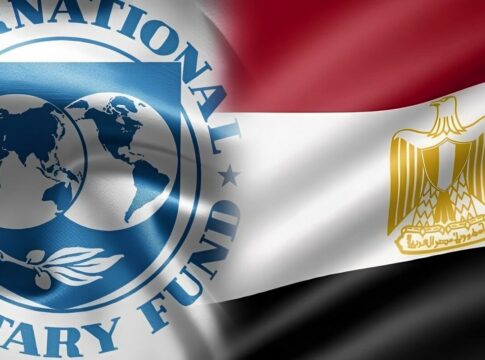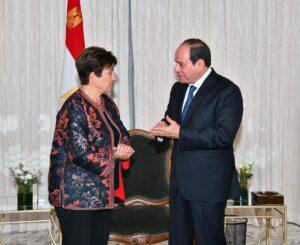Egypt stands at a critical juncture on its path to economic reform, engaging in intensive dialogue with the International Monetary Fund (IMF) amid mounting regional and global challenges. The latest IMF mission, led by Ivana Vladkova Hollar, underscored the need for Egypt to advance its economic program under the Extended Fund Facility (EFF). However, the discussions highlighted a fundamental tension: the IMF’s push for rapid, targeted reforms versus Egypt’s need for a measured and sustainable approach.
Amid escalating geopolitical tensions—including the conflict in Gaza adversely affecting Suez Canal revenues and the war in Ukraine disrupting global grain prices and fueling inflation, Egypt’s economy faces unprecedented pressures. Compounding these challenges are ongoing border instabilities, necessitating a prudent approach to economic management with an unprecedented inflow of refugees.
President Abdel Fattah El-Sisi has articulated Egypt’s commitment to economic reform within the framework of sustainable development. This approach advocates for allowing the economy and market time to adjust and gear up, rather than rushing towards end-point reforms that could destabilize the current fragile equilibrium. The success of Egypt’s economic endeavors is intrinsically linked to the IMF’s own success, urging for reforms grounded in common sense and prudence.
The IMF mission in November 2024 recognized the tangible steps Egypt has taken to stabilize its macroeconomic environment and enhance resilience. However, their call for immediate reform measures, including a flexible exchange rate and tightened monetary policy, represents a point of contention. These reforms, while essential, must be implemented in a manner that considers the broader socio-economic context and external shocks.
Economic experts emphasize the importance of allowing Egypt’s market a ‘breather’ to adjust to ongoing reforms. Dr. Ahmed Kamal from the Egyptian Economic Forum argues that “a hurried approach disregards the intricate balance required to navigate both domestic challenges and external pressures.”
The Regional and Global conflicts have significant implications for Egypt’s economic landscape that highlight the need for a cautious, adaptable reform strategy that acknowledges these externalities.
A successful reform program requires alignment on goals and recognition of Egypt’s unique socio-political and economic circumstances. As the path forward should not be dictated by rigid timelines but rather by a shared commitment to practical and achievable economic stability.
The IMF’s earlier press release in March 2024 outlined preliminary agreements on economic policies, stressing the need to slow infrastructure spending and preserve debt sustainability. However, the evolving challenges necessitate a revised approach that prioritizes Egypt’s economic resilience and gradual adjustment.
In navigating the complex landscape of economic reform, Egypt and the IMF face a shared responsibility. The path to reform is not just about immediate results, but ensuring that policies are sustainable and considerate of the larger geopolitical canvas. As Egypt continues to work towards comprehensive economic reform, it remains essential that both the IMF and Egyptian authorities forge a partnership rooted in pragmatism, patience, and mutual understanding to achieve success.





